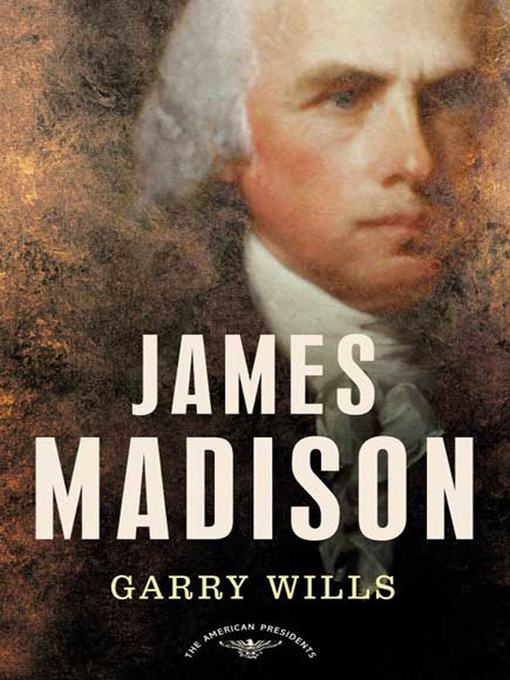
James Madison
The American Presidents Series: The 4th President, 1809-1817
کتاب های مرتبط
- اطلاعات
- نقد و بررسی
- دیدگاه کاربران
نقد و بررسی

February 18, 2002
It's tough to write a compelling biography of Madison: though a great politician, he was also a provincial, cerebral and slightly dull man; any account of his life must contain the kinds of dry legislation—the Non-Intercourse Act, Macon's Bill Number 2, for example—that have driven generations of history students to distraction. But Pulitzer Prize–winning historian Wills does as good a job as possible in this brief volume, the latest addition to a series on the nation's presidents edited by Arthur M. Schlesinger Jr. With prior studies of Washington, Jefferson and other Framers (including Madison) under his belt, Wills is well acquainted with his subject and balanced in his assessments. Madison, "this unimpressive little man with libraries in his brain," was the "Father of the Constitution" and the nation's fourth president. But during an extraordinary four-decade public career, Madison also guided Washington and Jefferson in their presidencies; steered the pioneering Virginia Statute for Religious Freedom through that state's legislature in 1786 and the Bill of Rights through Congress; and helped Jefferson found the Democratic Party. But for all Madison's greatness, Wills nevertheless (and justifiably) judges him naïve, inconsistent, occasionally dishonest, prone to sniff conspiracy in any opposition, and, like so many Southerners of the time, deaf to and finally paralyzed by slavery. Moreover, although he was a first-class committeeman, he lacked executive talent. His presidency was a near disaster and he narrowly averted defeat in the War of 1812. To Madison's credit, unlike other wartime presidents, he didn't stretch the Constitution or invade civil liberties. Madison had "the strength of his weaknesses," concludes Wills in this fine, short biography of one of the nation's greatest public servants.

June 1, 2002
In this work one of the first in a new series being published under the general editorship of Schlesinger Pulitzer Prize-winning historian Wills (e.g., Lincoln at Gettysburg, 1992) does not attempt to offer a complete biography of Madison. Rather, he sets out to solve a mystery: how could Madison have been such a spectacularly important Founding Father and later just a slightly above average President? Wills provides a thoroughly satisfying answer. He maintains that Madison possessed qualities that served him well early in his career but proved to be a handicap during his Presidency. For example, his superior skills as a legislator were not what he needed to face the crises of his presidential years, when personal charisma, social charms, and a wider vision would have been more useful. Moreover, Madison's parochialism (reflected in his aversion to traveling outside his beloved Virginia) made him greatly misjudge Britain in the War of 1812. Written with flair, this clear and balanced account is based on a sure handling of the material. It should appeal to general readers as well as specialists. Highly recommended for all libraries. T.J. Schaeper, St. Bonaventure Univ., NY
Copyright 2002 Library Journal, LLC Used with permission.

Starred review from March 1, 2002
James Madison, a prominent member of the distinguished group we know as the Founding Fathers as well as the country's fourth president, is the "beneficiary" of prolific historian Wills' biographical largesse. Called, in ironic tribute, "the unimpressive little man with libraries in his brain," Madison is presented in a particularly methodical--but certainly not dry or dreary--"distillation of character and career." Wills probes the crucial question about this undeniably important man: Why is he considered one of the nation's greatest founders but not a great president? Wills insists that to answer that question, it is " not" appropriate to divide Madison's life into two groupings, with the presidential years in one group and the other years of public service in another. What " is" appropriate is to isolate the "strands of continuity" between his presidency and his years as a Founding Father, two of the most important of these strands being his provincialism and his naivete. Wills' analysis of the Constitutional Convention and the War of 1812 is particularly fresh and incisive. Madison a hero? No one would make such a claim. But, then, history is not simply a pageant of heroes but also the story of intelligent, not especially colorful toilers.(Reprinted with permission of Booklist, copyright 2002, American Library Association.)

























دیدگاه کاربران